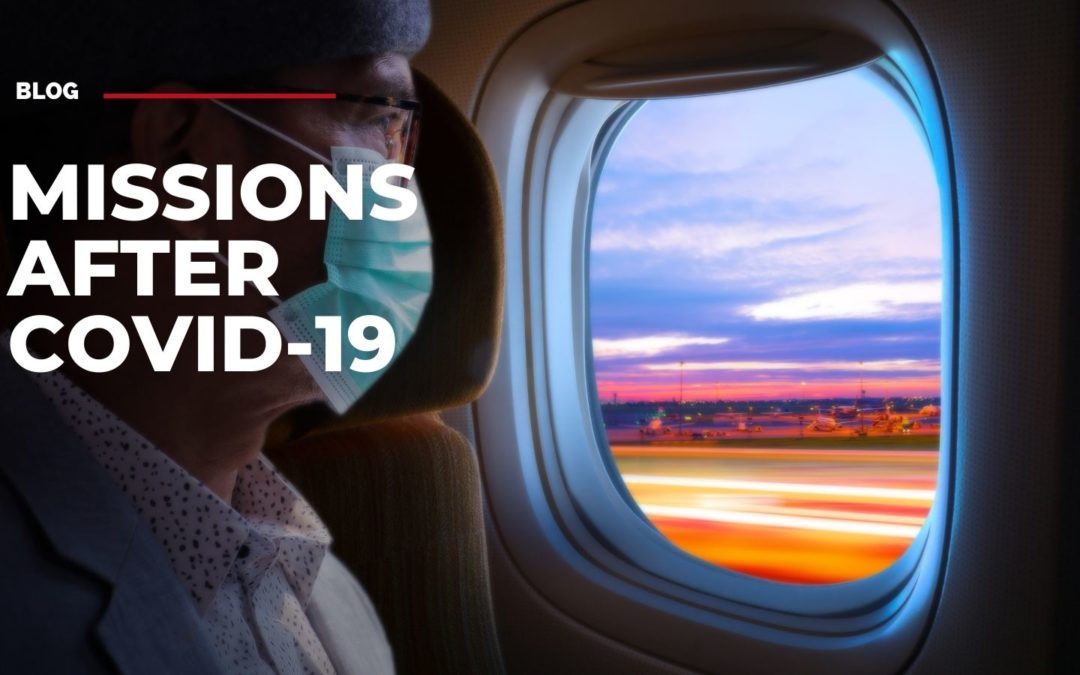What is the future of mission post Covid-19? At the moment, no one can even imagine what a post Covid-19 world looks like. After over a year, the end still does not seem in sight. More and more countries resort to even stricter lockdowns to try and get this pandemic under control. Here at the college, we are also directly affected by all those restrictions. Going home for the holidays often involves staying in quarantine for 10 days and trying to organize an internship plans have changed, again. Jesus says we should go to the end of the earth to preach the gospel. But how will this look like in the future? Patrick Johnstone, who has looked at the world from a mission perspective for many years, took some time in the summer to analyze the current pandemic from a missional perspective.
In the history of the world, there have been many pandemics and all of them had an impact on the course of history. This pandemic, so Johnstone will bring with it a lot of changes, and missions will have to adapt to this new situation quickly, since the Pandemic has accelerated changes in our world. Johnstone then goes on to talk about ten things that will happen because of Covid-19 pandemic.
One thing that Covid seems to speed up is the end of Western dominance in the world. A great change of power is on the rise. For one, China will be exporting its surveillance system throughout the whole world. Furthermore, with the refugee crisis, wars, and the economic collapse, hastened by Covid-19, the Western world will be less influential, and the focus will shift to China and the Muslim world.
While for so many years our democratic societies prided themselves in free speech, the last month have damaged this free speech and our privacy. Surveillance has highly increased during the rise of Covid-19 and Johnstone predicts that we are heading towards a surveillance society. At the same time, many people started voicing their opinion all over the web and people get absorbed into news bubbles, where people only get their information from a certain direction. There is no broad perspective and people are captured in an ego-chamber, as Johnstone calls it. But if information cannot be trusted anymore and all our news is biased and distorted, how can missionaries convince people that we have true and reliable news? Johnstone rightly asks, how we can preach truth when people are skeptical? This is an important question, missionaries have to get a grip on.
Another major change, directly related to Covid-19, is the end of cheap travels as we’ve come to know it in the last decades. For missions that means that overseas travel will be more complicated and large amounts of the money raised will flow into travel costs. Because travel will become so much more expensive, this will also mean the end of a large number of short-term mission trips and team travel. Instead of traveling, there will be a focus on technology and we might soon have the first Zoomist missionaries, doing overseas work from the comfort of their home. With these alterations, however, new challenges arise. Questions of how to recruit people but also of how to prepare them to be effective, will keep todays Christion leaders busy in the weeks ahead.
Luckily, after what seems like a rather bleak prognosis, Johnstone leaves us with a glimmer of hope. In countries like the UK, more people are willing to talk about Jesus and especially the Muslim world is opening up to the gospel message. Let us hold on to this hope and seize ever opportunity to share the only hope there is for every crisis we can face: Jesus Christ.
Summary of P. Johnstone’s podcast by our student Sarah

